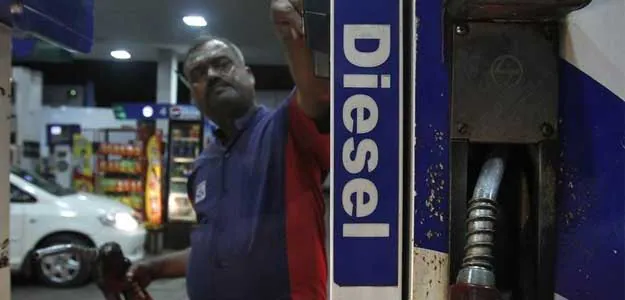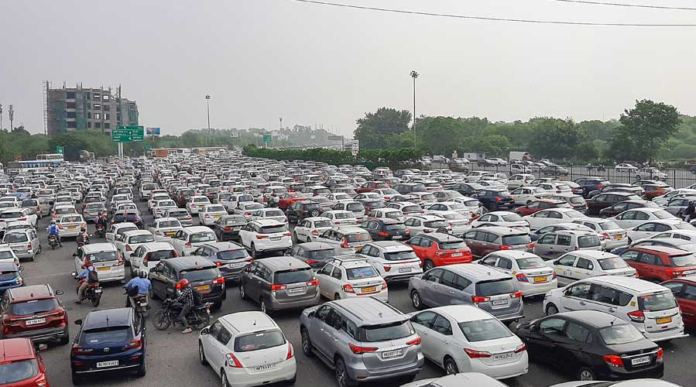A new Graded Response Action Plan for combating air pollution was presented by the authorities on Wednesday. This plan directs them to prohibit the usage of diesel vehicles in Delhi and neighbouring NCR areas if the AQI is expected to soar beyond 450.
The government’s top worry has been the declining air quality index (AQI) in the Delhi-NCR region, and it may now impose a ban on around 9.50 lakh diesel vehicles (including private cars) from operating on Delhi-NCR roadways. If it is anticipated that air pollution levels would exceed the 450-point air quality index, the government will outlaw these cars. A revised Graded Response Action Plan for combating air pollution was presented by the authorities on Wednesday. This plan directs them to prohibit the usage of diesel vehicles in Delhi and neighbouring NCR areas if the AQI is expected to soar beyond 450. If proper plans are not made, a crisis for commuters may arise, according to an examination of official data.

An analysis of vehicle data showed that there are 942,447 of these vehicles in Delhi alone. The only diesel vehicles that can be driven are the ones that comply with the Bharat Stage VI tailpipe emissions standards. The national capital has 10 million registered vehicles, with 1.12 million of these conforming to BS6, a standard that became mandatory for all new cars registered after April 1, 2020. Emission standards puts a cap on the maximum limit of pollutants a vehicle can emit for it to be legally approved. Diesel vehicles typically emit significantly higher amounts of nitrogen oxides (NOx) compounds, which have a significant impact on human health. BS6 compliant diesel vehicles are equipped with diesel particulate filter (DPF) and catalyst reductor helping them to emit less than a third of the volume of NOx they were allowed to under the BS4 standards. That said, only a tenth of all 10 million vehicles registered in Delhi comply with the new, less-polluting BS-VI standard.
The third stage of curbs, which is meant to be activated if the AQI is projected to rise above 400, can now be implemented by National Capital Region (NCR) states with permission from the Commission of Air Quality Management (CAQM), which revised the Grap. This stage bans the use of BS-III petrol and BS IV diesel vehicles. According to government statistics, there are 2,957,630 BS-III (BS3) automobiles registered in Delhi. In Delhi, diesel automobiles that are more than 10 years old are considered to be deregistered.
Several persons who asked to remain anonymous expressed discomfort over the decision, calling it a knee-jerk reaction, and questioned the validity of PUC testing in the city. “Can’t they make the PUC tests more reliable instead of imposing a ban or restriction on vehicles?” asked BS Vohra, president of the combined front of east Delhi RWAs, to Hindustan Times. Every year, the issue starts when farm fires in the states of Punjab and Haryana, where farmers set fire to miles upon miles of paddy fields after harvest to clear them of residue, fill North India with smoke.
Source: Hindustan Times

